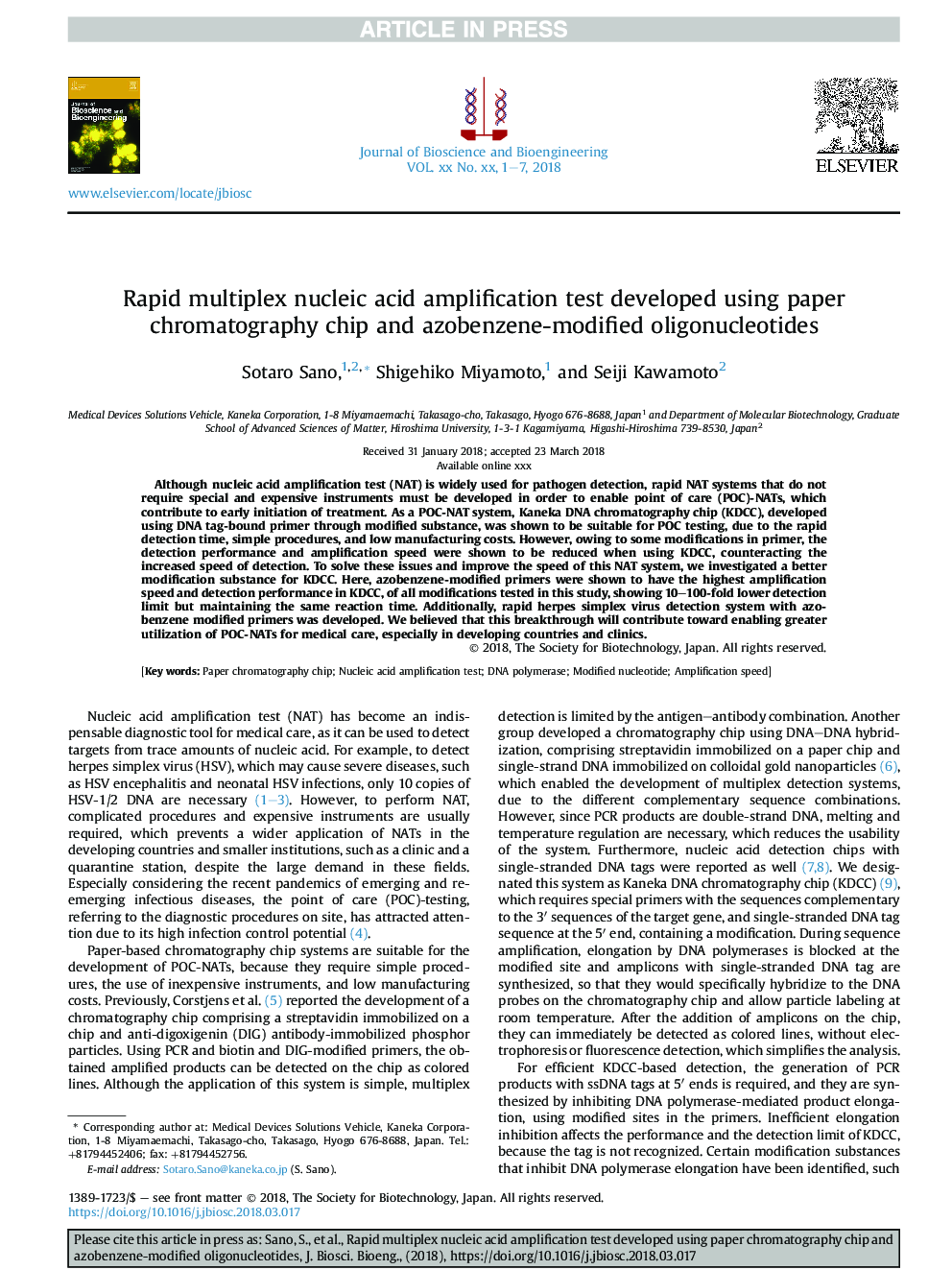| Article ID | Journal | Published Year | Pages | File Type |
|---|---|---|---|---|
| 6489603 | Journal of Bioscience and Bioengineering | 2018 | 7 Pages |
Abstract
Although nucleic acid amplification test (NAT) is widely used for pathogen detection, rapid NAT systems that do not require special and expensive instruments must be developed in order to enable point of care (POC)-NATs, which contribute to early initiation of treatment. As a POC-NAT system, Kaneka DNA chromatography chip (KDCC), developed using DNA tag-bound primer through modified substance, was shown to be suitable for POC testing, due to the rapid detection time, simple procedures, and low manufacturing costs. However, owing to some modifications in primer, the detection performance and amplification speed were shown to be reduced when using KDCC, counteracting the increased speed of detection. To solve these issues and improve the speed of this NAT system, we investigated a better modification substance for KDCC. Here, azobenzene-modified primers were shown to have the highest amplification speed and detection performance in KDCC, of all modifications tested in this study, showing 10-100-fold lower detection limit but maintaining the same reaction time. Additionally, rapid herpes simplex virus detection system with azobenzene modified primers was developed. We believed that this breakthrough will contribute toward enabling greater utilization of POC-NATs for medical care, especially in developing countries and clinics.
Related Topics
Physical Sciences and Engineering
Chemical Engineering
Bioengineering
Authors
Sotaro Sano, Shigehiko Miyamoto, Seiji Kawamoto,
